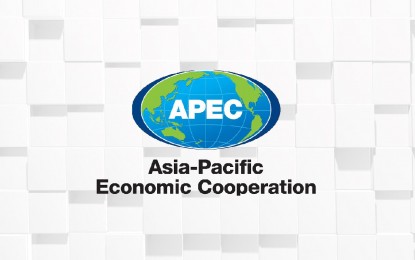
MANILA – The impact of the coronavirus disease 2019 (Covid-19) pandemic is seen to drag the economy of the 21 members of the Asia-Pacific Economic Cooperation (APEC), according to the May 2020 APEC Regional Trade Analysis.
The report of the APEC Policy Support Unit said the region’s gross domestic product (GDP) growth is expected to contract by 2.7 percent this year before bouncing back in 2021.
This means the APEC member economies will lose a total output amounting to USD2.1 trillion this year mainly due to a “substantial decline in merchandise trade volume and value in the APEC region due to the implementation of various trade-restrictive measures, such as anti-dumping, tariffs, duties and other levies.”
The global health issue has further dampened APEC’s slower economic growth and trade activities in 2019.
The report showed APEC’s GDP growth last year was lower at 3.6 percent than the 4.2-percent growth in 2018.
"Persistent uncertainty is testing our resilience; trade and technology tensions and post-Brexit concerns all contributed to the lackluster economic activity in 2019. The severity and uncertainty as to the duration of the Covid-19 pandemic further aggravate the ongoing challenges," APEC Policy Support Unit Director Dennis Hew said in a statement Thursday.
In 2019, the value of merchandise exports in the region declined by 1.9 percent while imports also contracted by 2.9 percent.
It was a turnaround from an export growth of 8.9 percent and imports growth of 10.8 percent in 2018.
Trade in services likewise started to slow down last year, with services exports only increasing by 2.3 percent from 8.5 percent in 2018 while imports were slightly up by 0.4 percent from 7.3 percent.
Despite the downward forecast for this year, APEC’s economic growth is expected to rebound next year.
“A global economic rebound is forecasted for 2021. The APEC region will grow by 6.3 percent, hinged on the effectiveness of containment and economic stimulus measures,” the APEC Policy Support Unit said.
It added that APEC member economies should have a coordinated approach towards economic recovery by bolstering health systems, improving social protection, facilitating a free flow of information and supply of essential products, and implementing coordinated stimulus measures as needed.
The APEC Policy Support Unit is also proposing a regional pandemic policy toolkit to prepare the region for future pandemics.
The policy toolkit should include preparing for a health emergency, investigating, and monitoring potential outbreaks, sustaining health services, preventing further waves of an outbreak, and preparing for recovery.
The Philippines is a member economy of APEC along with Australia, Brunei Darussalam, Canada, Chile, China, Hong Kong, Indonesia, Japan, Malaysia, Mexico, New Zealand, Papua New Guinea, Peru, Russia, Singapore, South Korea, Taiwan, Thailand, the United States, and Vietnam. (PNA)
